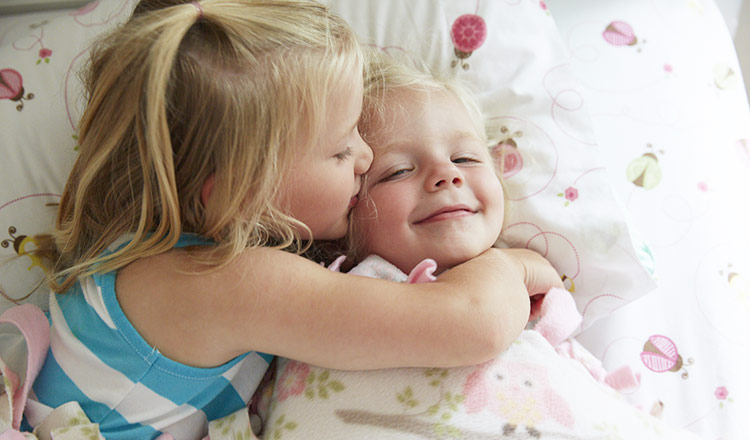Confidence and considerate behaviour are the key building blocks for developing self-esteem, self-worth and self-discipline, when it comes to children, according to Sydney’s leading Child Clinical Psychologist, Dr Anna Cohen.
Parents have long tackled the establishment of good behaviour in their kids by rewarding their compliance and punishing their bad behaviour. Whilst there is merit to this approach, it is also important that children develop the qualities of ethical actions and considerate behaviours on their own.
This isn’t to say that there shouldn’t be any boundaries for children, but they do need to develop somewhat independently, as opposed to making choices that are based solely on someone else’s (i.e. their parents’) expectations.
We want our children to have lives filled with friendship, new adventures and an eagerness to learn, and we want them to have the emotional and intellectual tools to help them face the challenges that life throws at them. Most of this can be achieved if they are able to work with, and be considerate towards, others in their peer groups – be they family or friends.
Considerate behaviour is when a child does something because it’s the right thing to do. We want our children to be considerate, not because they are afraid of doing the wrong thing, but because they know it’s the right way to behave. From this they will gain immeasurable satisfaction and confidence.
As adults, we have a responsibility to create an emotional climate that encourages our children to cooperate as an act of caring for themselves and others. Here are some tips on fostering considerate behaviour and confidence:
1. LISTENING
Be aware of your child’s needs and respond to them when you can. Whilst this may sound obvious, as parents we are not the most active listeners. Children just want to know their parents are listening, and you’ll be surprised at how they will copy this behaviour. You’ll learn more, if you stop and listen.
2. CLEAR UNDERSTANDING
It is important to have clear expectations, routine and boundaries so you can guide your child’s behaviour by setting parameters for them to work within.

3. ACKNOWLEDGING
Simply acknowledging considerate behaviour is far more effective than focusing on the negative and issuing statements of blame, which can make children feel judged and criticised.
4. CONSEQUENCES
Behavioural errors are normal. Children don’t yet have a deep understanding of what it means to be considerate, so as an adult we need to teach them this skill. Part of that is acknowledging good and considerate behaviour, whilst also not tolerating inconsiderate behaviour. Being endlessly patient will not teach our kids that what they are doing is wrong, and this can often lead to parents responding in an out-of-control manner when the situation escalates.
5. EXPECTATIONS
As parents, we sometimes have expectations or demands that our children are not capable of doing. Recognise this and move the goal posts – no one likes to be set up for failure.
6. TOO MANY CHOICES
Offering choices is important, but too many can be unhelpful and can make some children feel burdened with responsibility. Limiting the choices to two options often produces the best results.
As always, parenting in every situation and circumstance is different and these tips are something you can add to your bag of tricks when you feel your parenting ‘tool box’ is empty.
If you’re clear on what behaviours you choose to let go, and focus on nurturing considerate behaviours and empowering your children to understand there are logical consequences for all behaviours, then with time self-discipline, self-worth and self-esteem will come!
You’ll have a child who will have confidence in the knowledge they know how to bring out the best in themselves and others!
Written by Sydney’s leading Child Clinical Psychologist, Dr Anna Cohen from Kids & CO.
About Dr Anna Cohen
Sydney’s leading Child Clinical Psychologist, Dr Anna Cohen has been at the helm of Child Psychology for over 20 years. Having worked in both the public health system and the private sector, she specialises in the assessment, diagnosis and treatment of children and young people with psychiatric, emotional and behavioural difficulties.
In her many years of experience, Dr Cohen has developed a special interest in helping parents develop skills and confidence in raising their children. From this, she wrote ‘parenting made easy’, a book she designed as “a bag of tricks” approach to parenting, which serves to empower parents, and encourage them to direct and guide their children, rather than control them.
How do you encourage your children to cooperate as an act of caring for themselves and others? Join the discussion below…









